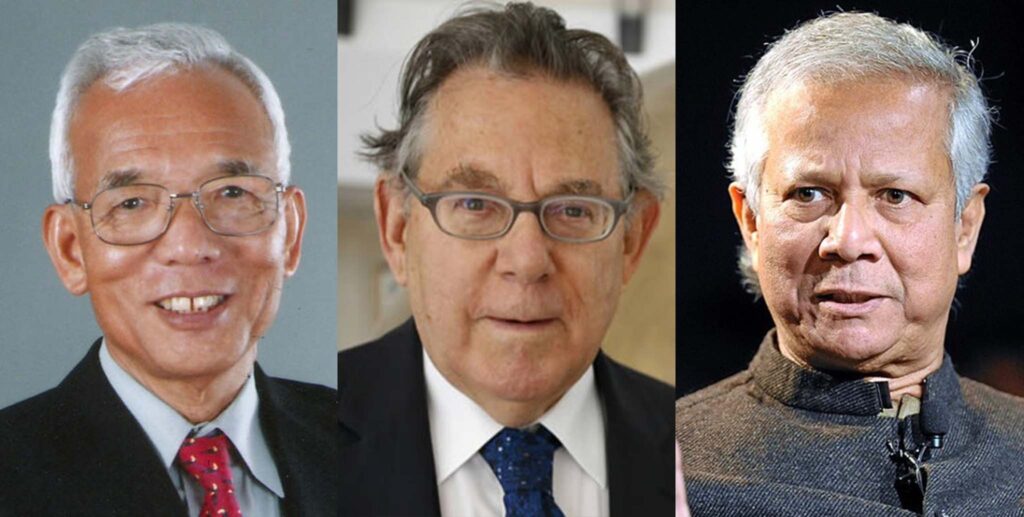 Syukuro Manabe, Paul Crutzen, Muhammad Yunus
Syukuro Manabe, Paul Crutzen, Muhammad Yunus
The Volvo Environment Prize event 2023 starts soon.
 Syukuro Manabe, Paul Crutzen, Muhammad Yunus
Syukuro Manabe, Paul Crutzen, Muhammad Yunus
For the third time, a Volvo Environment Prize laureate is also awarded the Nobel Prize.
The Nobel Prize in Physics 2021 went with one half jointly to Syukuro Manabe, Princeton University, USA and Klaus Hasselmann, Max-Planck Institute for Meteorology, Hamburg, Germany ” for the physical modelling of Earth’s climate, quantifying variability and reliably predicting global warming”.
Syukuro Manabe was already in 1997 awarded the Volvo Environment Prize for this type of research.
He showed how increased carbon dioxide content in the atmosphere gives rise to higher temperatures on the earth’s surface. During the 1960s, he led the development of physical models for the Earth’s climate and was the first to explore the interplay between the radiation balance and the vertical transport of air masses. In this way, he laid the foundation for the development of today’s climate models.
This is not the first time that the Scientific Committee and Jury of the Volvo Environment Prize have identified research that later led to Nobel Prizes. Two other scientists were first awarded the Volvo Environment Prize and later the Nobel Prize. Atmospheric scientist Paul Crutzen received the Volvo Environment Prize in 1991 for his findings on the ozone layer depletion. Four years later this research also earned him the Nobel Prize in Physics. Another example is Bangladesh economist and Harvard graduate Muhammad Yunus, rewarded with the Volvo Environment Prize in 2002 for his work to tackle poverty and create jobs through microfinancing. Four years later, in 2006, he was awarded the Nobel Peace Prize for his efforts “to create economic and social development from below”.